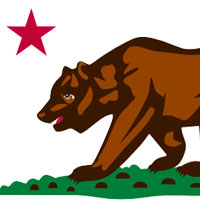Battle of the Ballot
Fights over Fall Initiatives Feature High Political Stakes
The high-profile, big-spending campaigns for governor and U.S. Senate have so far dominated coverage of the 2010 election in California.
But voters also will face a slate of initiatives on the November 2 ballot that arguably carry bigger potential political impacts than the mere question of who becomes the state’s next chief executive or its representative in the World’s Greatest Deliberative Body.

The nine initiatives focus on some of the most important and far-reaching issues that shape California: What will the state’s political landscape look like for the next decade? Should the state’s milestone greenhouse-gas regulations be rolled back in the name of economic development? Should the Byzantine process of approving a state budget begin to be reformed?
Beyond this, voters also will have opportunities to recalibrate the calculus of who should finance big areas of state government: Are corporations overtaxed, or should they pay a greater share? Is preserving the state parks system a high enough priority that drivers will tax themselves to pay for it? And, most intriguingly, will Californians legalize the sale of marijuana, in the process generating upward of $1 billion in new revenue?
One other epic political battle that has afflicted California through most of its history — how water should be apportioned in a state where two-thirds of the rain falls in the north and two-thirds of the population lives in the south — was also headed for a November showdown. But at press time, it appeared that sponsors of a huge water bond changed their minds about the wisdom of asking Californians to sort out its complexities amid the worst economic downturn since the Great Depression.
Here is a first look at the big issues confronting voters this fall:
Prop. 18 — This $11-billion bond issue was supposed to be an important start at solving California’s unending conflicts about water. But just days after it received its ballot number, Governor Schwarzenegger — its most enthusiastic sponsor — moved to take it off the ballot, fearful that recession-wracked voters would turn it down. It now seems headed for the 2012 election.
Prop. 19 — Sponsored by operators of medical marijuana dispensaries, this initiative would legalize and tax the sale of pot for recreational use in the state. Backers were disappointed it wasn’t identified as Prop. 20, so they could say they were “Fo(u)r 20.”
Prop. 20 — One of two measures affecting reapportionment, the arcane but crucial process of redrawing political boundaries to reflect the new census, this proposition would take away the power to craft new districts for members of the House of Representatives from the legislature and give it to an independent commission, which already has authority over crafting maps for Assembly and state senate seats.
Prop. 21 — Backed by advocates for state parks, which have been whacked in recent budgets, this would add an $18 annual surcharge to vehicle license fees, with the money earmarked for parks and wildlife programs. Those who paid the fee would receive free admission to the state system.
Prop. 22 — Sponsored by the League of California Cities, this would bar the legislature from “borrowing” tax revenues that are supposed to go to local governments for redevelopment, transportation, and other projects.
Prop. 23 — This initiative, so far funded almost entirely by big oil companies, would suspend AB 32, California’s landmark climate-change and greenhouse-gas legislation, unless and until state unemployment falls to 5.5 percent, a level reached only a few times in the last 30 years.
Prop. 24 — This proposition would repeal several billion dollars worth of corporate tax breaks enacted as part of last year’s budget deal, which authorized several key changes in the way businesses calculate their taxable income.
Prop. 25 — This measure would reduce, from two-thirds to a simple majority, the vote necessary to pass a state budget, one of the current restrictions that has meant delay in passing spending plans in recent years. But many progressives argue it won’t do any good unless the constitutional amendment requiring a two-thirds vote for general tax increases is also lowered.
Prop. 26 — A sleeper issue with big potential effects, this business-backed initiative would increase, from a majority to two-thirds, the legislative vote needed to impose special fees on industries, such as pollution abatement charges on chemical companies, by redefining “fees” as “taxes.”
Prop. 27 — The flip side of Prop. 20, this measure backed by incumbent politicians would abolish the independent commission that now has the power to redraw political districts, and return it to the legislature.
The 2010 version of the voter handbook should be truly epic.



